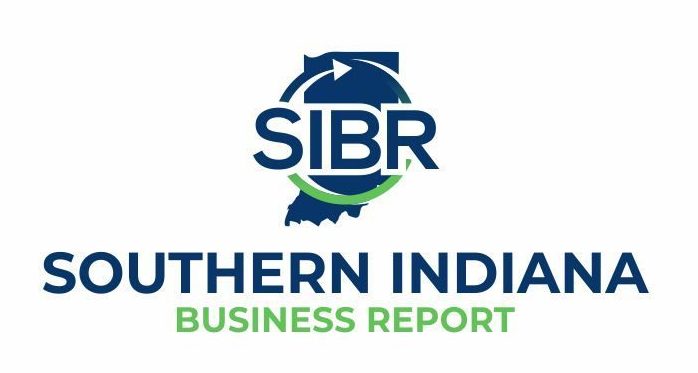By Michael Hicks | Ball State University
An obscure economic fad known as Modern Monetary Theory is again in the news. This is in part because its leading advocates are backing away from several of its central predictions, while simultaneously claiming the doctrine has won the policy debate. The whole thing is a bit absurd, and should bore most thoughtful Americans. These sort of academic debates, whether they be about some obscure archeological find or mathematical proof, are best left to sort themselves out within the research community.
Still, we live in a time when the way Americans understand truth is under siege by folks from both political extremes. That makes the MMT controversy a useful window into how we create knowledge and uncover truth. It is a long, messy process with some well-accepted rules that foster transparency and reproducibility. First, some background.
Macroeconomics is the study of the whole of the economy. The big three questions are what causes growth, inflation and unemployment. The field is challenging for two reasons. First, there are very few recessions to study — only a dozen and a half in the past century. In many ways this makes understanding recessions the equivalent to predicting and understanding hurricanes using only the data from the summer of 1974. Second, the structure of the economy and the policies used to address these issues change constantly. So, for example, if you could estimate a very clear trade-off between inflation and unemployment in 1974, there’d be little reason to expect it would be the same in 2011.
The answers macroeconomists come up with are important because they drive spending decisions on trillions of dollars and interest rates that affect the world’s economy. Not surprisingly, the process is full of errors. Indeed, two of the most famous macroeconomic theorists, both Nobel laureates, make the central case that the process of intervening in a recession is enough to make earlier predictions wrong.
If economics risks these types of mistakes, how can we have any trust anything that we estimate or predict? That is a central concern that gets at the heart of the MMT debate. Indeed it is the question that animates all research, and has done so for several hundred years.
The modern way we confront this issue is not especially complex. For the past several hundred years, researchers offer some sort of testable hypothesis for their ideas. This “falsifiability” allows critics and supporters alike to test your hypothesis in a sort of marketplace of ideas. The way we test these ideas varies a bit between disciplines, each of which attempt to build a rigorous approach. Much of the technical research professors publish is an effort to build a better falsifiability test.
In economics, and indeed political science, finance, public administration and several other fields, the nearly universal approach to falsifiability lies in creating some sort of mathematical relationship that can be falsified with data. This has several important benefits. First, it is a precise way to help you discover errors in your own thinking. Second, it draws a wider audience of researchers to your ideas as other researcher work to disprove your work.
The final benefit of this process is that it removes the individual ego from the process, and allows others to build upon the ideas. A modern physicist may never read a study by Einstein to grasp the fullness of his work. Thousands of newer scholars have improved upon these ideas, won their own Nobel prizes and added to our species understanding of the world. And that brings us back to MMT.
The proponents of MMT have resisted any effort to build testable hypotheses for their theories. There are literally no central MMT propositions that its advocates have explained in a way that can be falsified by data. It is not just that they haven’t provided mathematical equations, they don’t have a written description of a falsifiable hypothesis.
In a very real sense, the advocates of Modern Monetary Theory aren’t rejecting some aspect of modern economics. That would be useful. The approach MMT advocates take rejects the ways in which ideas are offered and vetted for 300 years. This makes clear that MMT has never been about uncovering truth, but promoting a set of popular policy ideas. But, there are two better ways to know the failure of MMT, and neither require knowing any economics.
The loudest critics of MMT come from economists who share many of the same policy goals of heavy federal spending and universal job guarantees. A few fiscally conservative economists have criticized MMT, but the most scathing critiques come from progressive economists. On the center left, Larry Summers, Brad DeLong and Noah Smith have been unsparing in their description of the failure. But, the most painful criticisms come from most progressive economists, including Paul Krugman and Thomas Palley.
An even more telling criticism of MMT comes from its closest political allies. A central argument of MMT is that deficits don’t matter and that tax increases are the optimal tool for curbing inflation. The most prominent MMT economist even served on the Bernie Sanders campaign. Yet, both Senator Warren and Senator Sanders wholly reject MMT policies. In the presidential campaign, they both presented budgets that they claimed were paid for by tax increases, hence rejecting the most visible aspect of MMT. In today’s inflationary environment, neither are calling for any aspect of MMT to address the problem.
This brings us back to what we can learn from the MMT discussion in a world where objective truth is under assault.
We are a wonderfully heterogeneous species, with diverse interests and preferences. We know different things derived from differing world views and experiences and have chosen to live in a nation that explicitly accommodates nearly all these differences. Central to that is a process of developing shared facts and truth. The process at uncovering facts and truth is built on institutions that share and test these facts in a competitive process—the marketplace of ideas.
The marketplace of ideas takes place in courts, schools and universities, in the media and on social media platforms, in government statistical agencies and in think tanks. It is not always pretty or quick, but in a world where thousands of Americans claim rigged elections without evidence and millions avoid vaccines because of rumor, it has never been more important. The simple truth is that MMT is really no different than false election fraud claims or anti-vaxxers. Theirs is not a rejection of evidence or science or current public policy, but of the modern world itself. For that reason alone they should be ignored.
Michael J. Hicks, PhD, is the director of the Center for Business and Economic Research and the George and Frances Ball distinguished professor of economics in the Miller College of Business at Ball State University.



